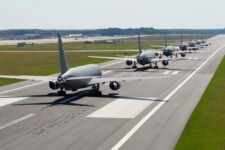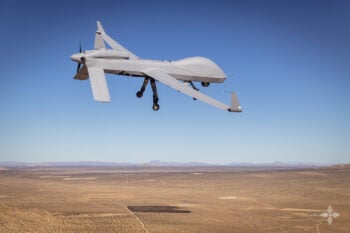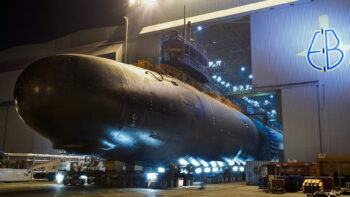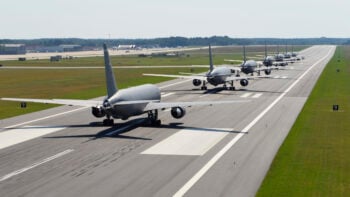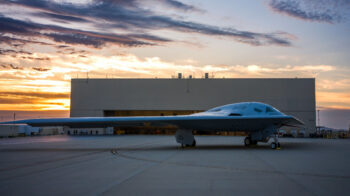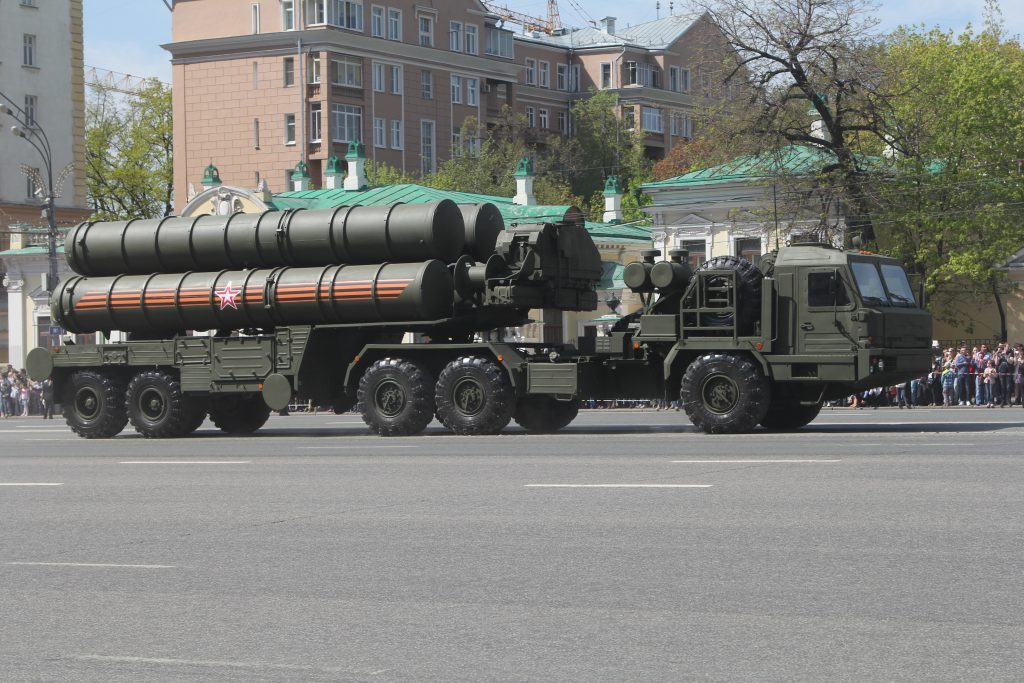
S-400 Triumf missile launcher
WASHINGTON: Both President Trump and a top State Department official confirmed today the administration may slap sanctions on Turkey for buying the Russian S-400 air defense system.
Amid a testy press conference alongside French President Emmanuel Macron at the NATO summit in London, Trump said the US is “looking at” whether to impose sanctions, but again sought to excuse the Turkish decision to buy Russian instead. “We’re talking about it now. As you know, Turkey wanted to buy our Patriot system, and the Obama administration wouldn’t let them.”
The Obama administration offered Turkey the Patriot system but never came to an agreement with Turkey over disagreements about how many sensitive technologies the US would share with Ankara. Last year, the Trump administration also offered Turkey the Patriot system but Ankara rejected the pitch, saying its deal with Russia for the S-400 was already done.
Just after Trump’s remarks in London, Christopher Ford, assistant secretary of State for international security and non-oroliferation told the Senate Foreign Relations Committee that “a deliberative process is still underway,” and the administration is looking at implementing sanctions required by 2017’s Countering America’s Adversaries Through Sanctions Act (CAATSA). The law gives the president 12 possible sanctions to select from to punish countries buying Russian military hardware. Options include cutting off access to loans from financial institutions and denying US visas to government officials.
When pressed by Sen. Bob Menendez about possible sanctions on Turkey, Ford mentioned the recent case of China, which was hit by CAATSA sanctions in September 2018 for buying ten Russian SU-3 aircraft and S-400 equipment.
Ford said it took the State Department about eight months to issue a sanction determination in the Chinese case, and it took time to make sure that we understood the implications and had done our homework with regard to the sanctions. So that is indeed the precedent here.”
He added that Turkey took possession of the S-400 a little over four months ago, so “with respect to Turkey, the process is still underway.”
In the Chinese example, the State Department penalized China’s Equipment Development Department, the military branch responsible for weapons and equipment acquisition, along with its director, Li Shangfu, for engaging in “significant transactions” with Rosoboronexport, Russia’s largest arms exporter.
Not everyone wants to wait, however.
Monday, the bipartisan duo of Sens. Chris Van Hollen and Lindsey Graham wrote Secretary of State Mike Pompeo to demand Turkey feel the CAATSA sting.
“Both the Administration and the Congress have repeatedly warned President Erdogan that his decision to move forward with the S-400 requires the imposition of American sanctions,” they wrote. “The time for patience has long expired. It is time you applied the law. Failure to do so is sending a terrible signal to other countries that they can flout U.S. laws without consequence.”
The US has already kicked Turkey out of the F-35 program for buying the S-400, and Pentagon officials have said they expect the last Turkish manufacturer to be removed from the program by March.
President Trump’s long admiration for the Turkish president, who regularly jails journalists and political rivals, is not shared by many within NATO. And his explanation for why Turkey bought Russian clearly fell flat with French President Emmanuel Macron today.
Seated next to Trump, Macron proclaimed, “how is it possible to be a member of the Alliance, to work with our office, to buy our materials, to be integrated, and to buy the S-400 from Russians? Technically, it is not possible.” He added that Turkey had also considered buying the SAMP/T air defense system from the European defense collective MBDA, but punted.
“It’s their own decision,” Macron said, “even having a European option, totally compliant with NATO. So they decided not to be compliant with NATO.”
While China remains the sole CAATSA victim, despite Vietnam, India, and many others buying Russian gear, another State official, R. Clarke Cooper, recently suggested Egypt might be in danger of falling under the law if it goes forward with a reported deal to buy $2 billion worth of Russian Su-35 fighter planes.
If sanctions are imposed on the Turkish defense sector, Turkish analyst Ali Bakeer told me, they’ll affect ongoing “defense projects and agreements worth billions of dollars, such as the sale of T129 ATAK helicopters to Pakistan because of the foreign component the Turkey needs to produce such equipment,” and likely push Turkey to find alternative markets and suppliers, including Russia and China.
Missile Defense Agency’s new long-range radar steps toward full deployment
“The LRDR completed a Space Domain Awareness (SDA) data collect event in January 2024 that proved the SDA capability, and the U.S. Space Force and MDA are in the process of formally declaring LRDR ready for SDA early use in April 2024,” according to MDA Director Lt. Gen. Heath Collins.


